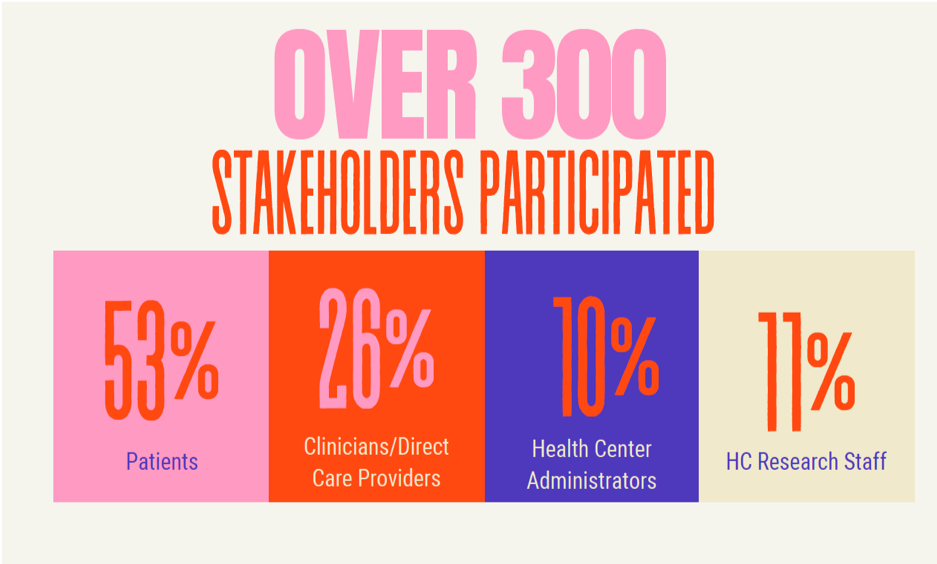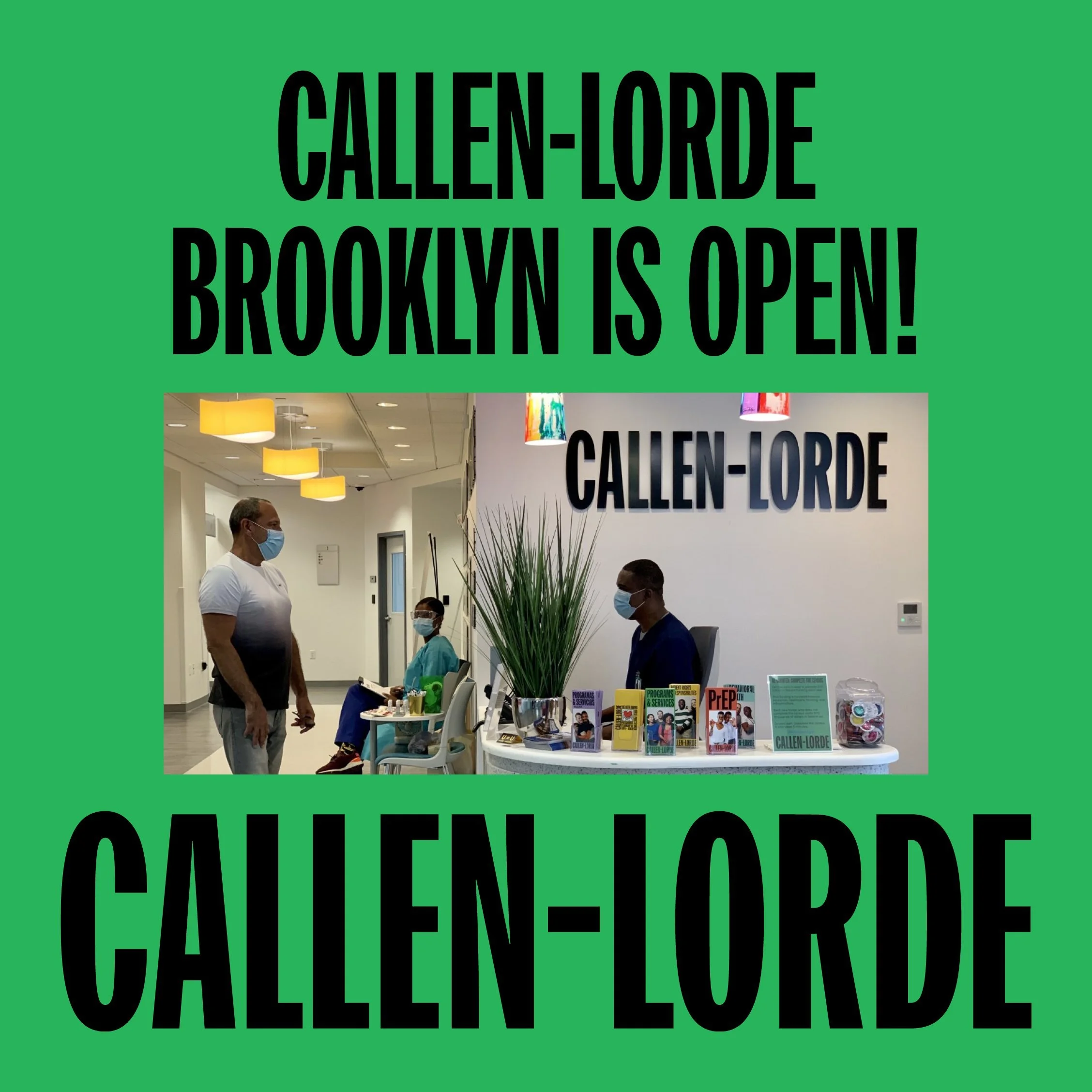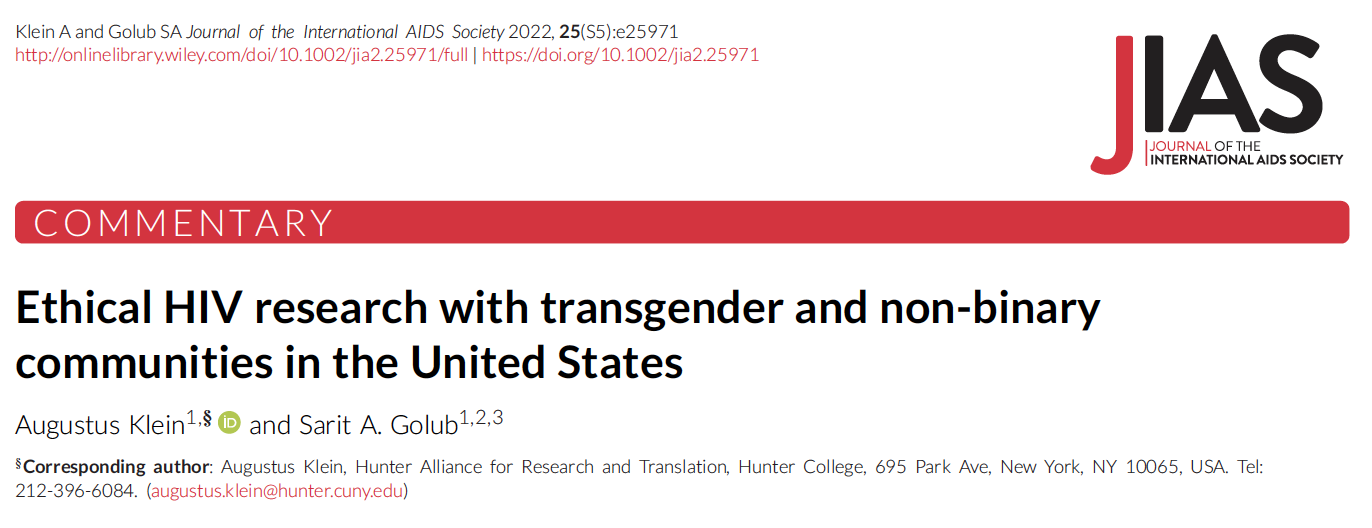Community engaged research
HART is committed to community-engaged and community-responsive research, meaning research that is meaningful and useful to our partners, is grounded in their expertise and experience, and is profoundly equitable in terms of budgeting, effort, reach, and sustainability. Our work is grounded in the six guiding principles of Good Participatory Practice (GPP): respect, mutual understanding, integrity, transparency, accountability, and community- stakeholder autonomy. The GPP perspective privileges context in the research endeavor, acknowledges inherent power inequities among different stakeholder groups, and offers concrete strategies to address and integrate these pivotal dynamics.
Developing a Stakeholder-driven Agenda to advance lgbtq+ health equity
In September 2020, HART was funded by the Patient-Centered Outcomes Research Institute (PCORI) to conduct a convene a diverse set of stakeholders representing five of the leading LGBTQ+ community health centers (CHCs) across the United States: Callen-Lorde (New York, NY), Howard Brown (Chicago, IL), Legacy Health (Houston, TX), Lyon Martin (San Francisco, CA) and Whitman Walker (Washington, DC).
From September 2020 through August 2021, we engaged in a multi-stage collaborative process that included over 300 diverse stakeholders (over 50% of whom were patients). The project culminated in a 4-day virtual convening in which representatives from all five health centers came together to discuss: a) research priorities that are shared among patients and stakeholder groups; b) strategies for building research capacity within each health center; c) strategies for increasing training opportunities and representation of LGBTQ+ individuals in all aspects of the research process, and d) opportunities for cross-center collaboration on a coordinated PCOR/CER agenda.
HART’s principles for
Ethical Community-Engaged Research (CER)
To complement our commitment to Good Participatory Practice (GPP), our team has developed six core principles for ethical partnership:
Equitable budgeting
Partnership in the development of both research agenda and methods
Integration of any research activities into the ongoing work of the partner site
Prioritizing the role of client/patient over the role of participant
Ensuring community-focused dissemination
Planning for sustainability
Please click here to download our statement of these principles and our guidelines for ethical practice.
The convening culminated in the publication of a WHITE PAPER CONVENING REPORT, which included:
TEN SHARED COMMITMENTS, representing the beliefs, principles and aspirations for high-quality, equitable, patient-centered, and community-engaged LGBTQ+ research, and a vision for future research work that was identified and affirmed by convening stakeholders;
THREE HIGH-PRIORITY RESEARCH AREAS (each with 3-4 specific research topics) identified by convening stakeholders as most important to them and the communities they serve;
TWENTY SPECIFIC STRATEGY RECOMMENDATIONS identified by stakeholders as the way forward toward an equitable LGBTQ+ research agenda, including actions that can be taken within individual health centers, across a consortium of health centers, by academic and other research partners seeking to do collaborative work with health centers, and by public and private funders seeking to make a difference in this field.
Funded Projects
ALAI-UP: Accelerating Implementation of Multilevel-strategies to Advance Long-Acting Injectables for Underserved Populations
Funded by the Human Resources Services Administration (HRSA) | U1SHA46532 (Katrine Meyers, PI)
September 2022- August 2026
ALAI-Up is a Special Project of National Significance (SPNS) funded by HRSA to support the implementation and delivery of injectable treatment to reduce HIV-related health inequities. ALAI-UP will partner with eight community-based health centers across the United States to co-develop protocols and implementation resources, provide technical assistance for program development and sustainment, support professional development and capacity-building for health center staff, and share strategies for monitoring, evaluation, and continuous quality improvement. HART is one of four multidisciplinary Coordination and Evaluation Providers (CEP), and leads the Resource Development Team, which is primarily responsible for creation of the projects Program Builder Template and related resources (protocols, checklists, patient education materials) to support implementation at partner sites. This project builds on our implementation science research to translate core findings and methods for data collection and analysis into tools and strategies that will be most useful for community-based implementation.
Building PCOR/CER Capacity in a Consortium of LGBTQ+ Health Centers (COMPLETED)
Funded by the Patient-Centered Outcomes Research Institute (PCORI) | EACC#18813 (Sarit Golub/Augustus Klein, MPI)
September 2020-August 2021
The primary objective of this project was to develop a stakeholder-driven, multi-pronged agenda for PCOR/CER to advance health equity goals for LGBTQIA+ communities. The project was a collaboration between HART and five of the leading LGBTQ+ community health centers (CHCs) across the United States: Callen-Lorde (New York, NY), Howard Brown (Chicago, IL), Legacy Health (Houston, TX), Lyon Martin (San Francisco, CA) and Whitman Walker (Washington, DC). In this one-year community engagement grant period, we conducted “listening sessions” at each community heath center, including both quantitative and qualitative data collection from over 300 stakeholders (53% patients); we conducted a four-day virtual convening, including 49 stakeholders (41% patients) to building consensus and identifying short- and long-term action steps that addressed the three long-term objectives of the project; and created and disseminated a White Paper that summarize the shared commitment, priority research topics, and recommendations that emerged from our yearlong engagement project.
Impacts spotlight – how our research is making a difference
Needs Assessment to Guide Community Health Center Expansion
In 2014, Callen-Lorde Community Health Center approached HART to design and administer a community needs assessment with the goal of providing CLCHC with a targeted, data-driven report to inform strategic planning for the development of a new clinic in Brooklyn. HART surveyed almost 600 community members (including current CLCHC patients living in Brooklyn and Brooklyn residents who might switch their care to CLCHC if a Brooklyn site was available. We provided recommendations for: location planning, services planning, financial planning, and branding/continuity of mission. In 2017, after securing a location for the new Brooklyn clinic (based in part on our needs assessment recommendations), CLCHC contracted with us agin to provide an updated assessment (n = 543) of their population’s unmet health care needs, their most desired services, the factors that would most strongly motivate patients to initiate and access services at Callen-Lorde Brooklyn, strategies for engaging with the community (both current and prospective Callen-Lorde patients) who might be attracted to the Brooklyn site, and aspects of environmental planning that would make potential patients feel welcome and safe in their new site. In addition, we conducted a qualitative supplement project, in which we conducted in-depth qualitative data interviews with individuals from three priority groups (n = 23), to better understand how to best meet the health care needs of these communities. Our findings were presented to both the executive team and the full staff at the health center, and Callen-Lorde has credited our needs assessment reports with contributing to the selection of their site and development of their service delivery plan.
Ethical research with transgender and non-binary Communities
Drs. Augustus Klein and Sarit Golub recently published a commentary in the Journal of the International AIDS Society reviewing some of the critical challenges to HIV research with transgender and non-binary communities that limit the potential for such studies to improve practice, and detailing six recommendation for ethical HIV research with transgender and non-binary communities designed to center their values, needs and priorities at all stages of the research process.





